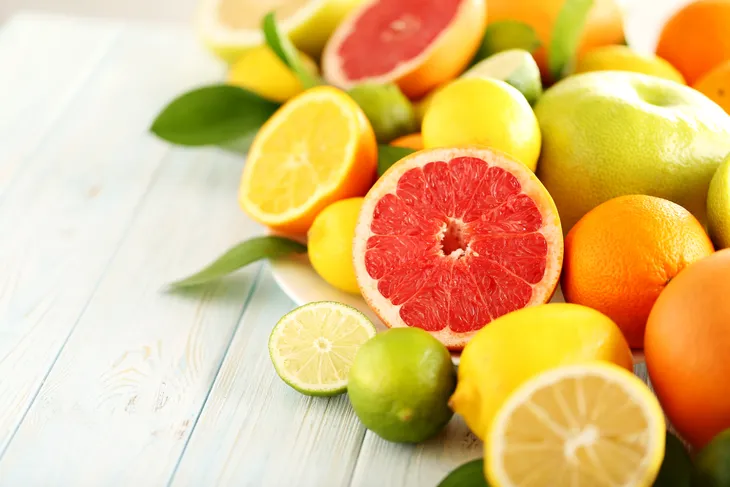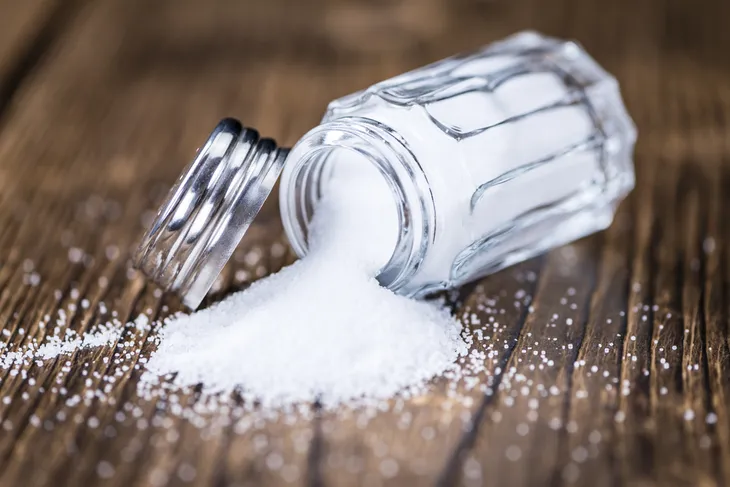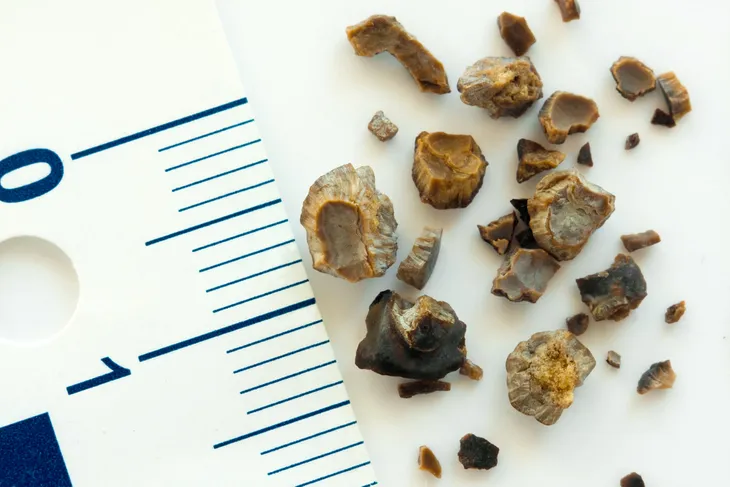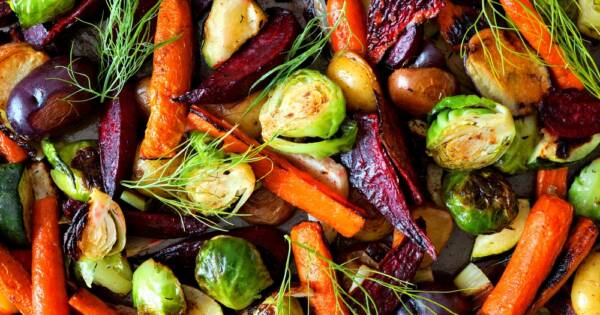If you’ve ever had the pleasure of passing a kidney stone, you already know that something tiny—a solid mass of congealed minerals lodged in your urinary tract—can cause a world of agony. Luckily, you can lower your risk of developing kidney stones if you steer clear of certain risk factors.
Six risk factors for kidney stones are…
Want diet & nutrition content delivered straight to your inbox? Sign up for our exclusive diet & nutrition newsletter!
1. Not Enough Citrus
You might want to reach for an orange, grapefruit, or a slice of lemon to squeeze into that glass of water after reading this—a lack of citrus fruit in your diet can contribute to the formation of kidney stones.
A research study published in Nature found that individuals who incorporated citrus fruit (i.e., lemons, limes, oranges, and grapefruits) into their diet for a month lowered the emission of chemicals in the urine that congeal and contribute to kidney stone formation (i.e., uric acid and calcium).
2. Patients with Inflammatory Bowel Disease
It’s unfortunate when one health condition perpetuates another, which is the case with inflammatory bowel disease (IBD) and kidney stones.
In fact, a 2013 study published in the International Journal of Nephrology and Renovascular Disease claims that patients with ulcerative colitis and Crohn’s disease (the two forms of IBD) are at increased risk for developing kidney stones due to dehydration, and IBD patients can become easily dehydrated due to diarrhea.
3. Certain Migraine Medications
If you suffer from migraine headaches and your doctor has prescribed medication, your kidney stone risk may be amplified. For instance, a 2006 study featured in the American Journal of Kidney Diseases found that topiramate (Topamax) contributed to kidney stones.
The study revealed that topiramate lead to higher pH levels in the urinary tract. An increase in pH levels has been linked to kidney stone formation.
4. Excessive Salt Intake
You likely didn’t equate too much salt (sodium) with kidney stones; however, research from the American Urological Association claims that excessive salt intake can result in the development of kidney stones.
Kidney stones are closely related to the amount of calcium emitted by the kidneys, and excessive amounts of salt increase the calcium present in the urine, which can lead to the formation of stones. Plus, if you suffer from high blood pressure, you should keep your sodium under the recommended 1,500-milligrams per day.
5. Laxative Misuse
Doctors constantly warn about the use and abuse of laxatives. However, a 2010 report published in the journal Drugs indicates that individuals who abuse laxatives (particularly those suffering from eating disorders, such as bulimia and anorexia) increase their kidney stone risk.
The research indicates that laxative misuse impacts bodily absorption. Thus, electrolyte and nutrient deficiency as well as dehydration can occur and lead to stone formation.
6. Southern Born and Bred
You wouldn’t think that geography would impact the development of kidney stones. However, research conducted by a group of urologists and published in the American Journal of Epidemiology claims that residents of the Southeast may be at increased risk for kidney stones.
Scientists say that those living in the Bible belt states of Alabama, Mississippi, Kansas, Oklahoma, South Carolina, and Texas have double the risk of kidney stone development and renamed the area “the kidney stone belt” as a result. Research shows that the heat and arid climate causes more fluid loss and a higher percentage of binding minerals in the urine. It just so happens that black tea (used to make iced tea) is a prime source of oxalate, a chemical that binds in urine and causes kidney stones to form.









